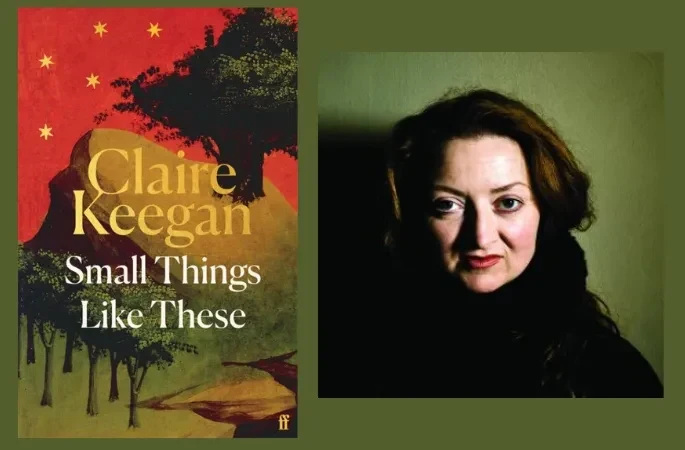Set in County Wexford, Ireland, Claire Keegan’s novel “Small Things Like These” tells the story of Bill Furlong. Bill, a coal merchant, lived with his wife Eileen and their five daughters. It was Christmas in 1985, and the parents were getting ready to buy presents even if they had very little. His business was doing well, but the outcome of the recession of the 1980s was felt and seen everywhere. People found it hard to pay bills and many emigrated, and one of the most poignant moments was Bill seeing a boy drinking milk left out for a cat.
After the introduction of the family, we are introduced to the convent in the town. Bill delivered coal to this place. (Why does talking about a convent always seem to give an eerie feeling?) It was said that the nuns at the convent ran a “training school” for all sorts of young girls, and a laundry business was running on the side of it. As usual, no one really knew what exactly was going on or everyone knew exactly what was going on. The common idea about them was that these were unmarried girls who had given birth. They were taken away from their families and made to work at this place. And, no, they won’t get to see their babies. And what of the father of the baby? As ever, it was only the woman who was at fault.
The story begins to build slowly when Bill visits the convent to receive payment for delivering coal and unexpectedly sees a group of girls polishing the floor. And one of the girls begged to take her away far as the river. Then, he was met with a nun and was taken away. He was helpless to do anything at that point, but this incident troubled him. He went home and said this to Eileen. Then he was reminded about his childhood.
“Where does thinking get us?” she said. “All thinking does is bring you down. If you want to get on in life, there are things you have to ignore, so you can keep on.”
Bill’s mother was unmarried by the time she gave birth to Bill. He didn’t know who his father was. Due to the kind-hearted nature of Mrs. Wilson, for whom his mother was working, took them both into her care and looked after them. This kept Bill’s mother away from being sent to the care of the nuns. Back in the present moment, during Christmas, with a heavy snowfall in the forecast, he delivered a coal order to the convent. As he opened the coal house at the convent, he saw a girl shivering in the cold locked inside the coal house. He quickly put his coat around her and took her back to the convent. As he was holding her close to him, she told him to find out about her baby who was 14 weeks old. So, the story begins…
Bill was taken to the Mother Superior. He was given tea. The girl was taken to be washed and put on clean clothes. It was an unsettling moment in the story. He witnessed the real situation. She cannot erase that situation from his mind. As she began to talk, as if nothing serious happened, she queried about the well-being of his family. During the conversation, she aimed to make him uneasy about the fact that he had no boys in his family.
“Sure, didn’t I take my own mother’s name, Mother? And never any harm did it do to me.”
“Is that so?”
“What have I against girls?” he went on. “My own mother was a girl, once. And I dare say the same must be true of you and all belonging to us”
What can Bill do here? Turn a close eye like everyone else? He couldn’t stop thinking about his mother who would have ended up in such a situation if it weren’t for the kindness of Mrs. Wilson. Can he go against the nuns here? The education of his five daughters depended on the Mother Superior and the nuns. What would the society think of him? The most important question was whether he could help this girl. This way of thinking shaped who he was as a person. The complexity of the story revolves around Bill’s thought process.
This story reflected the dark reality many girls faced in Ireland at this specific time. These were called the Magdalene Laundries. Until 1996, when the final Magdalene Laundry was shut down, the women went through this systematic institutionalised injustice. This issue is not only relevant for girls in Ireland but also for women worldwide. Despite the world’s progressiveness, a woman’s body and her actions can still awaken the moral police in society.
The novel was adapted into a film last Christmas (2024), with Cillian Murphy portraying Bill, delivering fewer lines but conveying emotions through his facial expressions. Emily Watson plays the ever-fearful Mother Superior. Capturing the darkness that literally and metaphorically looms in the story, the director Tim Mielants, ends the film with a haunting ambiguity, leaving the audience unsettled yet making us think about the quiet power of its ending. In the struggles between Bill’s social expectations and personal morality, Claire Keegan in “Small Things Like These” provides a poignant reminder of the never-ending fight for compassion and justice in a world clouded by judgment.



